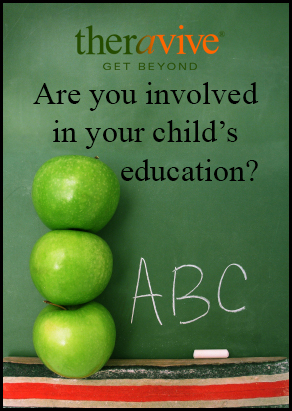 A Fundamental Error Parents Make in Their Child’s Education
A Fundamental Error Parents Make in Their Child’s Education
For many parents, educating their children is a job delegated to teachers where they absolve any responsibility to have any influence in shaping their child’s academics. This is the fundamental error that many parents commit where they are content being confined as only passive observers, reducing their role in perhaps the single most important event in the growth and development of their child. There has to be a realization on the part of parents to play an essential role in their children’s education. They have a lot to gain by doing so.
Rather than maintaining a principal and agent relationship in the provision of education as usually is the norm, there must be a realization on the part of teachers and parents that they are partners in such an enterprise. They must actively collaborate whenever and wherever possible for best results. Most parents’ only way of participating in their child’s academic activities is to appear at bi-annual or annual parent teacher meeting where the academic progress of the child is discussed, lip service is paid to the idea of parental guidance and where conflict may arise as a blame game starts about the negligence of duty.
How Parents Can Actively Take Part in Schooling Activities
- Education starts at home but is sustained at school, that’s why the role of both teachers and parents is essential in providing quality education. There are numerous ways through which parents can have a wider role and say in the education of their children. Parents should spare time helping their children complete their homework and class projects. By dispensing their own knowledge on particular subjects, they could be a great resource for children seeking guidance.
- By doing so, parents also get firsthand knowledge of the unique strengths and weaknesses their child possesses in the act of learning. They can also get to know what cues make their child respond favorably. Last and certainly not the least, being involved with their child in their academic pursuits allows for bonding time. Our most treasured memories of childhood are of those instances where our parents took the time out to dutifully provide their guidance and direction.
- By maintaining cordial relations with the teachers at school, parents open a line of communication about the academic progress and possibly outlying strategies where parents can volunteer for in-school activities that help teachers simply teach better.
- Parents can volunteer to conduct reading sessions in classrooms for the benefit of not only their child but other children as well. They can have interactive reading sessions of various books that help groom the intellectual faculties of the attendees. A reading list can also be compiled of titles which can be read out to the children in due course of time.
- By being more available and showing a willingness to engage, parents give a powerful symbol of their commitment and resolve to be involved in their child’s education and the teachers in turn are more willing to cooperate.
- Many parents can also request any of the administrative activities that can contribute in helping teachers. It could be anything from arranging a field trip, providing a guest lecture on a topic the parent may specialize in, or volunteering to be a guide on a field trip.
 The Complementary Role Teachers and Parents Can Play In Education
The Complementary Role Teachers and Parents Can Play In Education
After teachers and parents are on the same page about the current academic standing of a particular child, they can have a comprehensive discussion on ways to improve the child’s learning skills. This could be done by outlining a few goals that could serve as a gauge of progress from that time on. A review of which subjects a student excels at and the ones where improvement is required serves as a great starting point.
The concerned parent and the teacher could agree for example that a child’s diction and vocabulary is weak and efforts could be made to intensify efforts to improve that. The teacher could focus more on the child’s reading and writing skills in the classroom, while in turn, the parent could spare time at night reading to their child and inculcating a reading habit in the long term.
Parents and teachers to their loss don’t realize that they could be pretty effective partners in the education of their child. It does not have to be a conflicting arrangement, rather a meaningful partnership from which the child profits.
_________________________________________________________________________________________________________________________________
Curwin, R. (2012, April 27). Parents and Teachers: The Possibility of a Dream Team[Web log post]. Retrieved May 14, 2014, from http://edutopia.com
Johnson, B. (2014 March, 19). Like a Wood Duck: Finding Peace in the Classroom. Retrieved May 14, 2014, from http://www.edutopia.org/
Capretto, L. (2010 June, 18). 38 Easy Ways to Get Involved in the Classroom. Retrieved May 12, 2014, from http://www.oprah.com
Eredics, N. (2014 May, 17). How Parents & Teachers Can Work Together in the Inclusive Classroom. Retrieved May 12, 2014, from http://nichcy.org/
Bantuveris, K. (2013 September, 16). 5 Tips for Engaging Parent Volunteers in the Classroom. Retrieved May 12, 2014, from http://www.edutopia.org/
Christie Hunter is registered clinical counselor in British Columbia and co-founder of Theravive. She is a certified management accountant. She has a masters of arts in counseling psychology from Liberty University with specialty in marriage and family and a post-graduate specialty in trauma resolution. In 2007 she started Theravive with her husband in order to help make mental health care easily attainable and nonthreatening. She has a passion for gifted children and their education. You can reach Christie at 360-350-8627 or write her at christie - at - theravive.com.